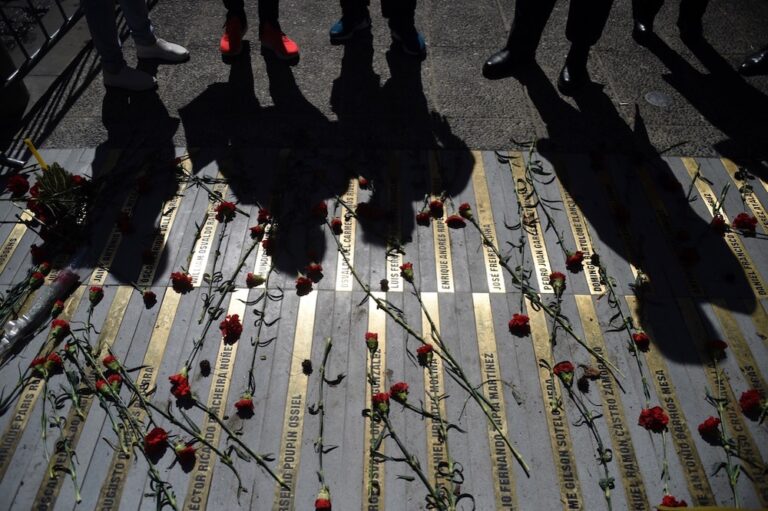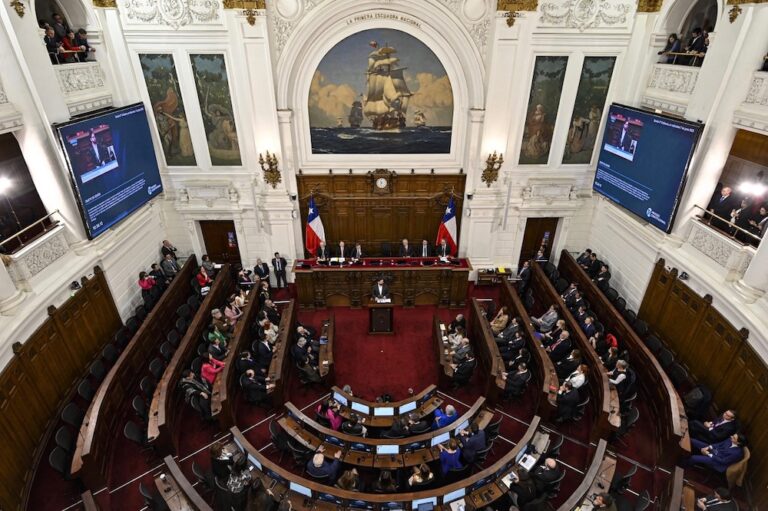(IPYS/IFEX) – After eight years of parliamentary proceedings, on 10 April 2001, the Chilean Chamber of Deputies approved a freedom of information and expression law, commonly known as the Press Law. One of the Press Law’s major advances is the repeal of Article 6 (b) of the State Security Law (Ley de Seguridad Interior del […]
(IPYS/IFEX) – After eight years of parliamentary proceedings, on 10 April 2001, the Chilean Chamber of Deputies approved a freedom of information and expression law, commonly known as the Press Law.
One of the Press Law’s major advances is the repeal of Article 6 (b) of the State Security Law (Ley de Seguridad Interior del Estado, LSIE), which treats defamation, injury and slander of high authority figures as crimes against public order. The law also eliminates LSIE provisions that allow journalists and publishers to be prosecuted for criminal liability and give judges the authority to seize publications.
Only twelve deputies voted against the elimination of this anti-democratic provision: Francisco Bartolucci, Gonzalo Ibáñez, Juan Masferrer, Jorge Ulloa, Sergio Correa, Darío Paya, Enrique Van Rysselberghe, Cristián Leay, Carlos Recondo, Julio Dittborn, all from the right-wing Independent Democratic Union (Union Democrata Independiente) party; Pablo Galilea, from the right-wing National Renovation (Renovacion Nacional) party, and Jaime Jiménez from the Christian Democracy (Democracia Cristiana) party.
This new law provides ordinary courts with information about crimes committed by individuals who abuse freedom of information or opinion.
The Press Law consecrates the right of journalists and others who receive information from privileged sources, such as photographers and photojournalists, to maintain confidential sources. It also allows for investigations of truthfulness in cases involving injuries, if the case is of interest to the public and when the injured person is a civil servant and the charges relate to their job function.
The new law abolishes the old law covering abuses of public figures, which regulated these topics, and eliminates judges’ authority to prohibit publication of background on court cases.
The most controversial issues relate to the regulation of the information market. Article 39 legislates that the Preventative Anti-monopoly Commission (Comision Preventiva Antimonopolios) must be notified of any changes in ownership or control of media outlets. With regards to media operating under state funding (such as public television), the preventative commission must create a report on the impact of the change in ownership on the information market.
Article 44 is also controversial, because it limits a company’s ownership to one public television station, regardless of the percentage of ownership involved. Currently, this only applies to cases involving control over broadcasting, not minority stakeholders.
Both articles were rejected by the aforementioned parliament members, but were approved thanks to reconciliation votes. The only article rejected by the chamber was Article 10, which obliges print media with circulation over 5,000 copies to declare the print run edition from the day before. This point was rejected by the National Press Association (Asociacion Nacional de la Prensa, ANP), the publishing companies’ trade-union, as well as by the right-wing parliament members.
Secretary-General of the Government and Minister Claudio Huepe stated that the government would insist on this provision if no auto-regulated system of verification is specified. The National Advisory Association (Asociacion Nacional de Avisadores, ANDA) and the National Publicity Agencies Association (Asociacion Nacional de Agencias de Publicidad, ACHAP), are undertaking this task in order to insure transparency in the information market. This commitment, which was made last year, has yet to be formalised.
Though the Chamber of Deputies’ vote is an important advance with regards to issues involving freedom of expression, it remains to be seen how the Chilean Senate will vote. It appears that this next step will take place on 17 or 18 April. If nothing new occurs as a response to the events of 10 April, the new press law will be approved no later than May, according to calculations made by the government and several parliamentary members.


